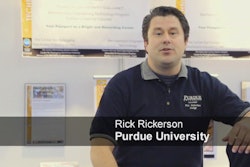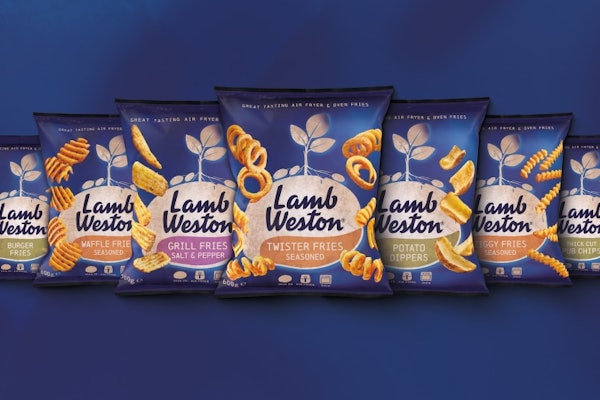
Packaging, as a discipline, has its own body of knowledge, known variously as packaging engineering, packaging science, and packaging technology. Knowledge to a level that qualifies one as a professional is obtained from experience, to be sure; however, formal education in the form of a degree is sought-after proof of one’s having obtained knowledge through an organized course of study. The universities that offer degrees in packaging are modest in number but do an admirable job in turning out graduates who possess a sound foundation in both theory and application relative to packaging.
Not only CPG industries but also all other industries that utilize packaging should support packaging education. So too, should all facets of the supply side. Donating to scholarships is a natural option, but there are others, including: internships; collaborative projects; attendance at university-given conferences; lending personnel to serve on faculties; and, financial contributions to the expansion and/or improvement of facilities. And, certainly, the user and supplier industries should manifest their support through the aggressive recruitment and hiring of graduates.
The totality of industry support for packaging education shouldn’t be directed at the university level, either. Support for packaging education also should be directed at the high-school, and even the grade-school, levels. The objective is to present packaging as an attractive career choice. This shouldn’t be an overly daunting task, given packaging’s many contributions, as reflected by the fact that the mass-production, mass-marketing, and mass-distribution that underpin our quality-of-life would not be possible without packaging. Even so, the sell has its challenges because packaging's reputation is under siege in these environmentally-conscientious times, due in large part to inadequate understanding of such concepts as the systems approach and life-cycle analysis. Educating the young about packaging, therefore, is more than conveying information but also requires imparting perspective.
It's further worth emphasizing to future university students that packaging is multi-faceted, part-art/part-science, providing opportunities for a wide range of talents and interests. Additionally, a way to ratchet the appeal of any discipline is to tout positive statistics about employment rates and salaries. The packaging-related industries should have the attitude that every graduate from a packaging program should be able to land a job in the discipline (consistent with the aforementioned aggressive recruitment and hiring of graduates).
Granted, there are companies that don’t have the size to justify a packaging department; nonetheless, any company that’s above mom-and-pop size and that substantially relies on packaging, should employ at least one full-time (preferably degreed) packaging professional, at a competitive salary. A limping economy notwithstanding, companies should be forward-looking. The demand for graduates of packaging programs should exceed supply, as a consequence of the facts that the vast majority of companies utilize packaging and that packaging programs are relatively few and scattered around the country.
Those last facts prompt the question of whether—in addition to support for existing programs—there should be an advocacy for the establishment of new programs. The answer is, yes. But there are core questions in relation to that answer, key among them being which universities should be the homes of the new programs and what should be the specialties of the new programs. Those determinations require the inputs from a consortium of (at minimum) industry, academia, trade associations, regulators, and private and public stake-holders.
Meanwhile, the existing programs are doing a yeoman’s job of minting graduates who will advance the frontiers of packaging. And if the following (listed alphabetically) is not an exhaustive roll call of those programs, it definitely includes the most renowned ones.
The Dean's list
• California Polytechnic State University offers a Minor in Packaging Science.
• Clemson University offers a B.S. and a M.S. in Packaging Science.
• Indiana State University offers a B.S. in Packaging Engineering Technology.
• Michigan State University School of Packaging offers a B.S., a M.S., and a PhD in Packaging Engineering.
• Rochester Institute of Technology offers a B.S. in Packaging Science.
• Rutgers University offers a B.S. in Packaging Engineering.
• San Jose State University offers a B.S. in Nutritional Science Concentration in Packaging and a M.S.
in Packaging Technology.
• University of Florida offers a B.S. in Packaging Science.
• University of Wisconsin-Stout offers a B.S. in Packaging.
As would be expected, the programs vary in terms of their concentrations; however, what they share is recognition that, in addition to competency in key subjects (i.e. math, chemistry, physics, etc.), graduates should possess strong backgrounds in analysis, problem-solving, communication, teamwork, project management, and social awareness.
In addition to being bastions of learning in the classroom sense, universities advance packaging by conducting primary research. In that latter role, universities not only need industry’s sponsorship but also its counsel as to which issues/problems should be the subjects of the research.
In conclusion, the discipline of packaging requires a solid academic base and all vested parties should adopt the old school spirit. So, give me a p-a-c-k-a-g-i-n-g. What does it spell? It spells a vital contributor to industry, society, and Earth.
Sterling Anthony is a consultant, specializing in the strategic use of marketing, logistics, and packaging. His contact information is: 100 Renaissance Center- Box 43176; Detroit, MI 48243; 313-531-1875 office; 313-531-1972 fax; [email protected]; www.pkgconsultant.com
























